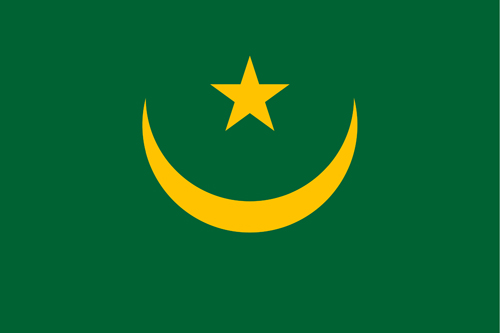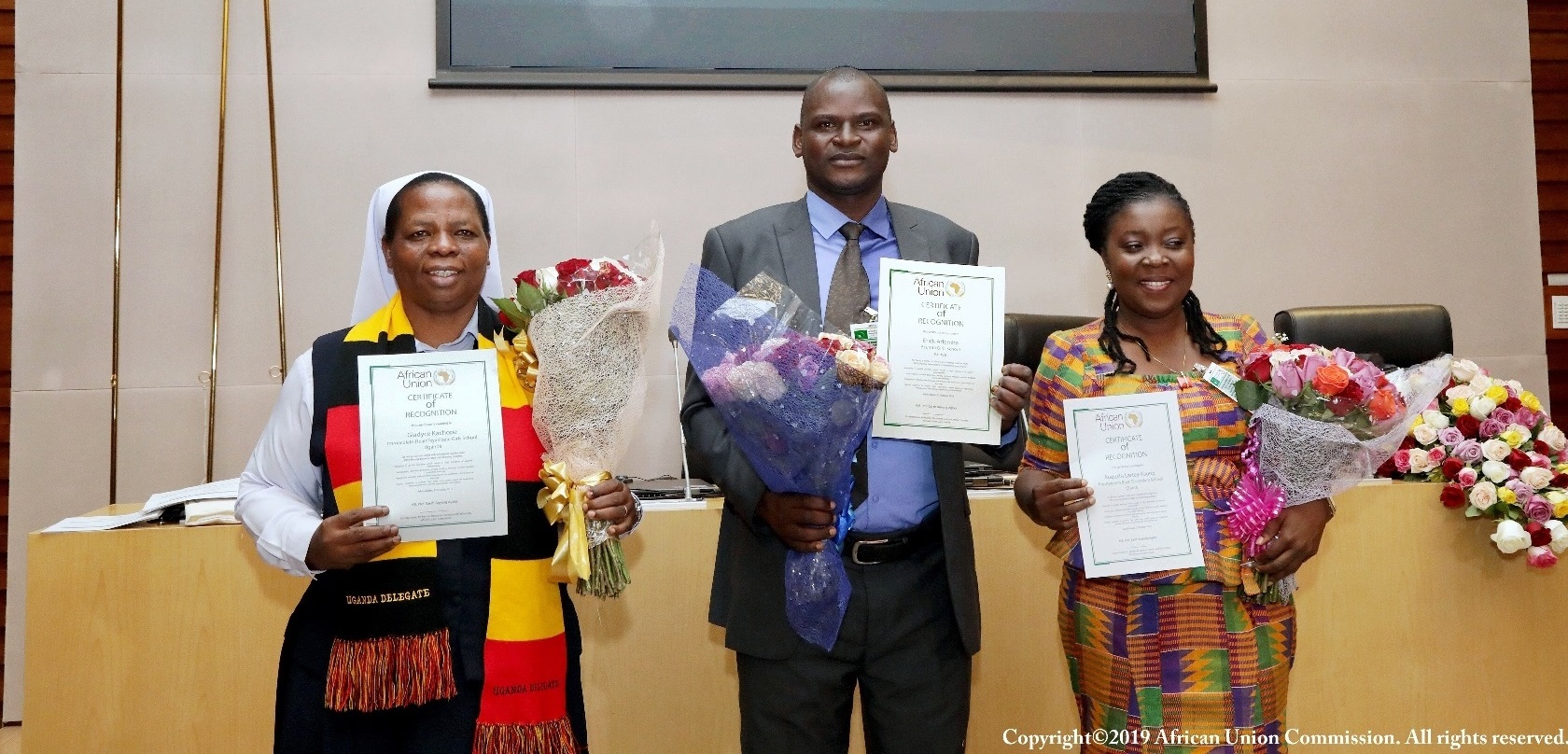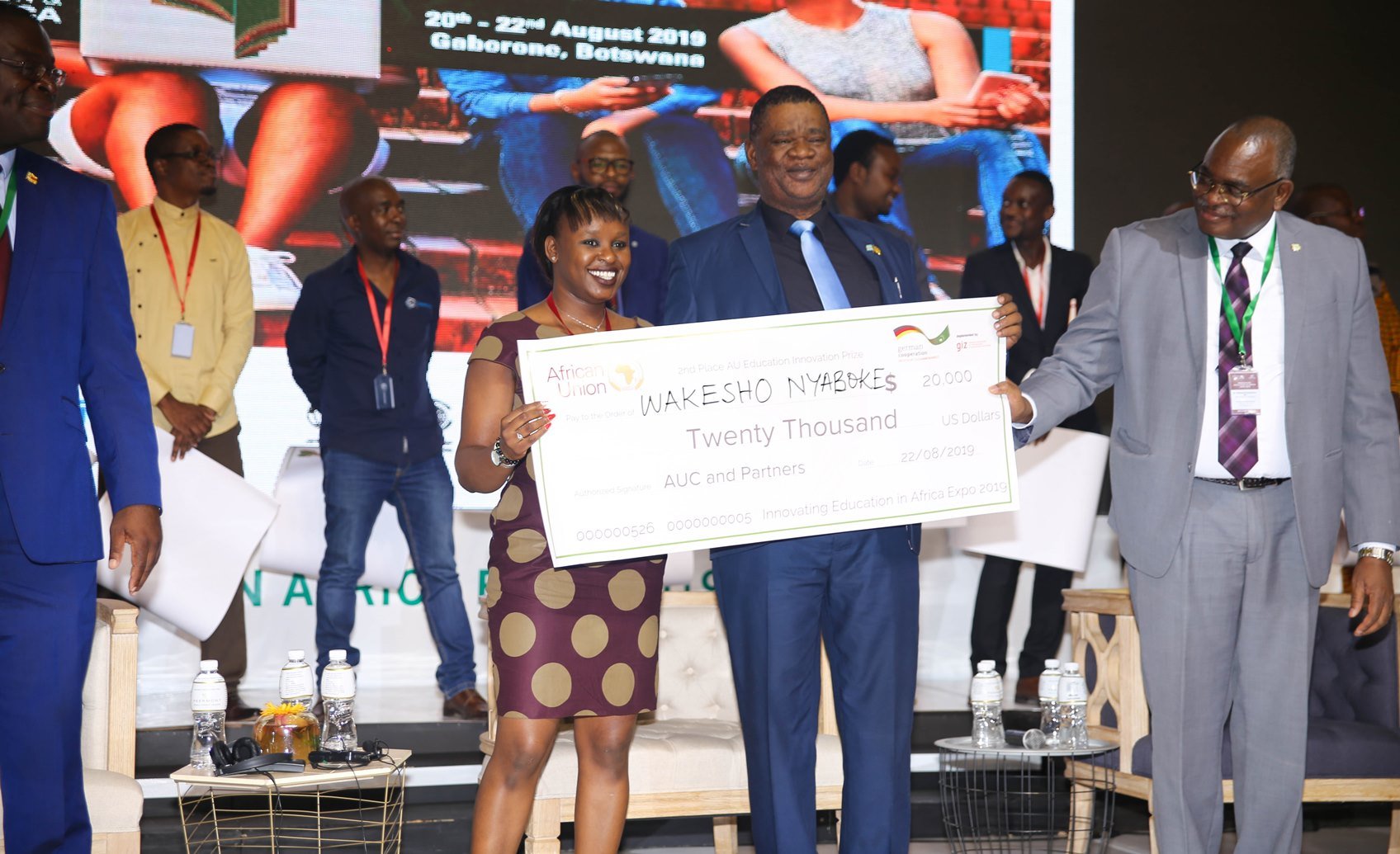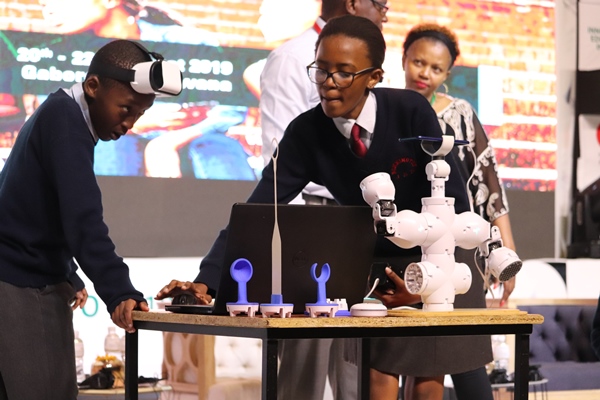
The information provided below was submitted as at 2020-06-10 13:33:07 by the Ministry of National Education, Vocational Training, Higher Education and Scientific Research of Morocco in responding to the AU Survey of Member States on Education Sector Response to COVID-19. The information is solely for experience sharing purposes and not to be used for other purposes without express permission of the African Union Commission.
| Country | Morocco |
| Ministry | Ministry of National Education, Vocational Training, Higher Education and Scientific Research |
| Education level handled by the Ministry | Pre-School, Primary, Secondary, TVET |
| Number of Schools in Pre-School | 28721 |
| Number of Schools in Primary | 24253 |
| Number of Schools in Secondary | 5740 |
| Number of Schools in TVET | 755 |
| Does the Ministry have a COVID-19 response plan? | Yes |
| Objectives and Priorities of the COVID-19 response plan | The educational continuity plan aims to offer lessons to students confined to their homes during the covid-19 epidemic, this period corresponds to the 3rd quarter of the 2019-2020 school year. The three cycles and all disciplines are concerned with the production and dissemination of courses. Production takes place at the central level for certification classes and at the regional and provincial levels for other school levels. The programming on the broadcasting channels is done at the level of the central watch committee, through the school television courses broadcast on SNRT channels and by GENIE program teams for telmidtice resources available via the web. The educational offer therefore passes through several dissemination channels: • The school television courses broadcast on the three channels Taqafia, Laayoune and Tamazight of the SNRT, 3400 courses were broadcasted between March 16 and June 2, 2020 • Telmidtice videos via the Internet https://telmidtice.men.gov.ma/ , the videos are downloaded for free on all media (phones, computers, tablets), a free streaming viewing solution is being finalized. As of June 2, 7,000 free educational resources are available, divided into 6,200 courses, 800 exercises and 450 exams. • Virtual classes created through www.taalim.ma , a Massar service, which allows teachers to be in contact with their students in a digital workspace, 779,836 virtual classes have been created. • The distribution of educational support booklets for Arabic, mathematics and French for the six primary school grades to one million rural students. These activity booklets are accessible to all students in digital format on the ministry portal https://www.men.gov.ma/Ar/Pages/EnsPrim_soutien0520.aspx • Note that the 8 million pupils have textbooks, which are their first learning aids. It should be recalled that, thanks to the royal initiative 1 million schoolbags, which concerns the donation of textbooks to 4 million pupils, access to textbooks is widespread. |
| Percentage estimate of Schools Closed | 90-100 |
| Percentage estimate of Schools Offering Distance/Virtual Education | 90-100 |
| Percentage estimate of Students who are currently receiving Virtual/Distance Education | 90-100 |
| Methods for the provision of Distance/Virtual Education | Lessons are scanned and sent through email for students to complete., Interaction through WhatsApp/Telegram or other social messaging applications between students and teachers, Online lessons via government owned e-learning portal, TV |
| Specific Innovations which are being implemented | Thanks to the partnership with institutions and foundations: • Access to resource platforms free of charge for students who can download OER for free. • Donation of tablets and connection to pupils in rural areas. |
| Partners which are supporting the Ministry of Education to respond to COVID-19 | EU, GIZ, UNICEF, USAID, The Mohammed VI Foundation for the protection of the environment, Moroccan Foundation for the Promotion of Preschool Education, ISESCO |
| Is there a plan for reopening schools? | Yes |
| Does the reopening plan include a back to School campaign? | Yes |
| Does the reopening plan include catch-up strategies for the school calendar and or curriculum? | Yes |
| Objectives and priorities of the plan to reopen Schools | In light of these elements, the following decisions were made: • Students do not join schools before September; • Face-to-face school activities will be limited to the organization of the final Baccalaureate exam: • The regional exam for the first year of the baccalaureate will be postponed to September 2020. In the interests of equal opportunities, the subjects of the Bac 2020 exams will relate exclusively to courses given in person before the suspension of studies following the coronavirus pandemic "COVID-19", that is until March 14, 2020. Intensive support courses will be scheduled remotely to help learners to review and prepare for their exams. • The ordinary session of the national exam of Bac 2020 in Morocco will take place in two poles: July 03 and 04, 2020 for the humanities and human sciences and original education branches and from July 06 to 08, 2020 July for the scientific and technical branches and the vocational baccalaureate. The national exam for free candidates will be organized according to the same schedule for the other school pupils. • For the other school levels of the 1st primary year (grade 1) in the common core of the qualified secondary (grade 10), quizzes grades and continuous assessments, carried out face to face, will be considered. • The studies will continue through pedagogical continuity, until the end of the school year for the benefit of all levels. Several necessary preventive measures will be implemented: • Sterilization of establishments, • Supply of masks, hydro alcoholic gels and means to measure the temperature, • Respect social distancing, • Use of very large rooms or spaces, such as sports complexes. |
| Is there a separate strategy/strategies for girls to catch up on their education due to the impact of COVID-19? | Yes |
| Challenges that have been encountered by the Ministry while responding to COVID-19 | Availability of Virtual Learning Technology Hardware and Infrastructure, Availability of Virtual Learning Software and learning platform, Internet Connectivity to support deployment Virtual Learning platforms |
| Date Submitted | 10-06-2020 |
If you are interested in contacting the Ministry for further information, please contect This email address is being protected from spambots. You need JavaScript enabled to view it.. Please note that any secondary use of this data is not allowed without seeking express permission of the African Union Commission.

The information provided below was submitted as at 2020-06-10 13:51:09 by the Ministry of Vocational Training of Morocco in responding to the AU Survey of Member States on Education Sector Response to COVID-19. The information is solely for experience sharing purposes and not to be used for other purposes without express permission of the African Union Commission.
| Country | Morocco |
| Ministry | Ministry of Vocational Training |
| Education level handled by the Ministry | TVET |
| Number of Schools in TVET | 3307 |
| Does the Ministry have a COVID-19 response plan? | Yes |
| Objectives and Priorities of the COVID-19 response plan | - Adoption of e-learning solutions to provide distance learning: • Microsoft Teams - Google Classroom - zoom and moodle - zoom meeting - Gmail from google Yahoo - Facebook -Whatsapp - Instragram - Skype - OFPPT site (OFPPT) - ISPITS E learning platform (D. Health) - Almaalem site (D. Crafts )… • These adopted solutions are used in a way: o interactive synchronization between trainers and trainees o asynchronous for sending and sharing documents and media. - Training and supervision of trainers of training operators on the use of remote IT solutions adopted by each OF in order to ensure the continuity of pedagogical training for trainees in Professional Training. Regarding the OFPPT, the main operator of the FP, its trainers have been trained on the Microsoft Teams tool through skills development centers (CDC) under the OFPPT. 75% of the trainers have joined the distance learning operation, including 3,868 permanent trainers and 354 temporary trainers. |
| Percentage estimate of Schools Closed | 90-100 |
| Percentage estimate of Schools Offering Distance/Virtual Education | 90-100 |
| Percentage estimate of Students who are currently receiving Virtual/Distance Education | 90-100 |
| Methods for the provision of Distance/Virtual Education | Lessons are scanned and sent through email for students to complete., Interaction through WhatsApp/Telegram or other social messaging applications between students and teachers, Online lessons via government owned e-learning portal, Online lessons via public-private partnership led e-learning portal |
| Number of Technical and Vocational Education and Training (TVET) Institutions offering Distance-Virtual Education | 3307 |
| Partners which are supporting the Ministry of Education to respond to COVID-19 | GIZ, Others, Switzerland |
| Is there a plan for reopening schools? | Yes |
| Does the reopening plan include a back to School campaign? | Yes |
| Does the reopening plan include catch-up strategies for the school calendar and or curriculum? | Yes |
| Objectives and priorities of the plan to reopen Schools | Resumption of the trainings in compliance with the instructions and sanitary measures is as follows: - Reopening of establishments from September 2020; - Catch-up of practical courses / revision of theoretical courses provided by distance learning; - Programming of internships; - Assessment of learning as follows: • The exit exam is postponed to September 2020 for the technician, specialized technician and qualification levels • The final exam for the qualification and specialization levels will be organized before November 2020 after having completed the usual practical training; • For the transition from the 1st year to the 2nd year, all specialties combined, only the notes of the continuous controls will be considered and the results will be published at the end of July 2020; The subjects of the exit exams will relate exclusively to the courses given in person before the suspension of studies following the coronavirus pandemic COVID-19. - Competitions for access to vocational training establishments are postponed until September 2020 for the technician and qualification levels ". |
| Is there a separate strategy/strategies for girls to catch up on their education due to the impact of COVID-19? | No |
| Challenges that have been encountered by the Ministry while responding to COVID-19 | Availability of Virtual Learning Technology Hardware and Infrastructure, Availability of Virtual Learning Software and learning platform, Internet Connectivity to support deployment Virtual Learning platforms, Technical capacity gaps for Virtual/Distance Education Support Personnel, Financing gaps, Others (to be provided), - Difficulties in providing practical work from a distance. - Difficulty in assessing trainees' distance learning (reliability, etc.). |
| Date Submitted | 10-06-2020 |
If you are interested in contacting the Ministry for further information, please contect This email address is being protected from spambots. You need JavaScript enabled to view it.. Please note that any secondary use of this data is not allowed without seeking express permission of the African Union Commission.

The information provided below was submitted as at 2020-05-19 18:20:49 by the Ministère de l'Enseignement Supérieur, de la Recherche Scientifique et des Techniques de l'Information et de la Communication of Mauritania in responding to the AU Survey of Member States on Education Sector Response to COVID-19. The information is solely for experience sharing purposes and not to be used for other purposes without express permission of the African Union Commission.
| Country | Mauritania |
| Ministry | Ministère de l'Enseignement Supérieur, de la Recherche Scientifique et des Techniques de l'Information et de la Communication |
| Education level handled by the Ministry | Tertiary Education |
| Number of Schools in Tertiary | 25 |
| Does the Ministry have a COVID-19 response plan? | Yes |
| Objectives and Priorities of the COVID-19 response plan | La réponse d’urgence pour la poursuite des activités de recherche vise à permettre aux étudiants et enseignants, durant cette période où ils ne peuvent pas de venir au laboratoire, de poursuivre une activité de recherche qui pourrait se faire à distance, pour cela il faut qu’ils puissent avoir accès à bouquets d’accès aux grandes revues internationales et qu’ils puissent échanger avec leurs collègues en visio- ou call conférences. Ceci nécessite d’avoir un accès internet de qualité et l’accès aux bibliothèques numériques. La réponse préventive consiste à développer une culture du travail à distance, mais dans certaines disciplines, il est difficile de ne pas réaliser des expérimentations réelles donc de venir au laboratoire pour travailler sur des équipements. Dans ce contexte, il semble que des mesures préventives de réaménagement des locaux afin d’éviter les inter-contaminations. Pour la gestion de la recherche au niveau du MESRSTIC et de l’ANRSI, il est important de développer une plateforme qui permet de gérer les concours et les appels à projet afin que l’ensemble des démarches administratives de dépôt de suivi et d’évaluation puisse être complétement dématérialisé. |
| Percentage estimate of Schools Closed | 90-100 |
| Percentage estimate of Schools Offering Distance/Virtual Education | 90-100 |
| Methods for the provision of Distance/Virtual Education | Online lessons via government owned e-learning portal |
| Partners which are supporting the Ministry of Education to respond to COVID-19 | Others, AFD |
| Is there a plan for reopening schools? | Yes |
| Does the reopening plan include a back to School campaign? | No |
| Does the reopening plan include catch-up strategies for the school calendar and or curriculum? | Yes |
| Objectives and priorities of the plan to reopen Schools | Minimiser les pertes en termes de dépenses et de temps (éviter au maximum une année blanche) tout en évitant le retour de l’épidémie et en arrivant au meilleur résultat possible de formation qualitativement et quantitativement. Avec une période accordée aux classes terminales( L3, M2 ..) |
| Is there a separate strategy/strategies for girls to catch up on their education due to the impact of COVID-19? | No |
| Challenges that have been encountered by the Ministry while responding to COVID-19 | Availability of Virtual Learning Technology Hardware and Infrastructure, Availability of Virtual Learning Software and learning platform, Internet Connectivity to support deployment Virtual Learning platforms. |
| Date Submitted | 19-05-2020 |
If you are interested in contacting the Ministry for further information, please contect This email address is being protected from spambots. You need JavaScript enabled to view it.. Please note that any secondary use of this data is not allowed without seeking express permission of the African Union Commission.

The information provided below was submitted as at 2020-06-10 23:22:02 by the Ministry of Higher Education and Scientific Research of Morocco in responding to the AU Survey of Member States on Education Sector Response to COVID-19. The information is solely for experience sharing purposes and not to be used for other purposes without express permission of the African Union Commission.
| Country | Morocco |
| Ministry | Ministry of Higher Education and Scientific Research |
| Education level handled by the Ministry | Tertiary Education |
| Number of Schools in Tertiary | 187 |
| Does the Ministry have a COVID-19 response plan? | Yes |
| Objectives and Priorities of the COVID-19 response plan | Faced with the COVID-19 pandemic, the Department implemented an intervention plan with the main objectives: • Operationalization of the provisions of the Circular of the Ministry of Economy, Finance and Reform of the Administration, N 1/2020 of March 16, 2020, relating to the plan of continuity of the public service to fight against the spread of CORONAVIRUS on the national territory, whether it be the precautionary and preventive measures taken at the level of administrative areas or linked to their operation, in particular: • Establishment of a permanence system, based on the development of a work plan to be executed daily while adopting the necessary flexibility; • Postponement of the organization of events (meetings, seminars, and demonstrations) and suspension of missions; • Replacement of face-to-face meetings with videoconferences; • Disinfection and cleaning of public spaces, workplaces, and sanitary spaces. • Educational continuity : • Suspension of courses in all public and private higher education establishments and replacement of face-to-face courses with distance courses, from Monday, March 16, 2020, until further notice. Also, educational and administrative managers were asked to invest effectively and intensively in order to guarantee educational continuity through the provision of digital and audiovisual resources and necessary teaching kits. • Making courses and conferences of teacher-researchers available to students, through platforms available to universities • Television transmission of courses and conferences to the national television channel "Arryadia", from March 25, 2020. • Broadcasting of courses and conferences for the benefit of students through national and regional radio channels and the SNRT LIVE application, as well as a live broadcast through platforms on social media sites and the production of several audio courses - visuals downloadable from university websites. • Postponement of all selection competitions for access to university higher education institutions, higher education institutions not belonging to universities, higher education institutions created within the framework of the partnership and private higher education institutions, and this until after deconfinement and passing of the baccalaureate exams. • Development of Scientific Research in fields related to COVID-19: Aware of its role in the promotion of scientific research, in particular, that related to the health field, the Ministry through its Department of Higher Education and Scientific Research (DESRS) as well as the National Center for Scientific and Technical Research (CNRST), has set up a multidisciplinary research support program in areas related to the current “Covid-19” pandemic. This program aims to produce new original scientific knowledge, with multidisciplinary approaches capable of treating all levels and all aspects of this pandemic. Three themes were selected: • How to analyze and understand the penetration and spread of the Coronavirus epidemic in Morocco? • What scientific recommendations to manage the transition period and allow a return to the normal situation in our country instead? • What lessons can be learned from this pandemic and what preventive measures can be put in place for the future? • Strengthening of international cooperation to achieve educational continuity: In order to diversify the means of success of pedagogical continuity on the one hand and to develop and institutionalize distance education at the Moroccan university, on the other hand, several meetings and workshops were organized with international partners including the European Union, the World Bank, British Council, the French Development Agency, the Embassy of the United States of America in Morocco, USAID and the Embassy of the United Kingdom in Morocco: • A digital library in the United Kingdom, aimed particularly at young Moroccan students, was launched on Tuesday, June 9, 2020, in Rabat, at the initiative of the Ministry in partnership with British Council Morocco. This digital library aims to consolidate and promote the distinguished relations between the Ministry and the British Council through the online availability and free of charge of a large number of educational cultural and scientific resources and distance education programs, in English, for the benefit of students, teachers, and researchers. • The Ministry (Department of Higher Education and Scientific Research) and the British Council signed, Friday, April 24, 2020, in Rabat, a cooperation agreement, relating to distance education of the English language and culture. It also aims to develop students' skills in learning the English language as the third language studied at university after Arabic and French, through the television programs “Word on the Street” and radio “Obla Air”, co-produced by British Broadcasting Corporation (BBC) and the British Council. • The Ministry (Department of Higher Education and Scientific Research) signed a cooperation agreement with the EBSCO international digital library, to allow professors and students free access to digital resources (electronic books, magazines, etc.) in several languages (Arabic, French, English, Spanish, etc.), for a period of 3 months. • The Ministry is contributing nearly 3 million euros to the global initiative “Coronavirus Global Response”, following the call for donations launched on May 4, 2020, by the President of the European Commission, Ursula von der Leyen, to develop solutions related to the development of effective means to fight the Covid-19 pandemic. • 41 MOOCs from the Ecole Polytechnique Fédérale de Lausanne were made freely available to engineering schools in Morocco, through a platform produced in 10 days. The initiative is part of the Excellence in Africa collaboration project with the Mohammed VI Polytechnic University (UM6P). • Organization of forums, seminars and conferences, in order to share experiences and good practices in the use of new technologies in higher education (the United States of America, the World Bank, the Agency French Development) |
| Percentage estimate of Schools Closed | 90-100 |
| Percentage estimate of Schools Offering Distance/Virtual Education | 90-100 |
| Percentage estimate of Students who are currently receiving Virtual/Distance Education | 70-89 |
| Methods for the provision of Distance/Virtual Education | Lessons are scanned and sent through email for students to complete., Interaction through WhatsApp/Telegram or other social messaging applications between students and teachers, Online lessons via government owned e-learning portal, TV, Radio |
| Specific Innovations which are being implemented | Morocco is one of the countries on the African continent that are the most innovative in the fight against Covid-19. Teams of scientists, doctors, engineers, students, and specialists have developed several innovative solutions to support the general effort to fight Covid-19 in Africa. In this context, several scientific medical inventions have been made (protective masks, medical devices for respiratory assistance, remote-controlled drones to contribute to awareness campaigns, development of mathematical models for monitoring the epidemic,). It should also be noted that a group of Moroccan researchers were able to publish their research on Covid-19 in journals classified at the international level, which allowed Morocco a very good ranking at the Arab and African levels. |
| Number of Technical and Vocational Education and Training (TVET) Institutions offering Distance-Virtual Education | 38 |
| Partners which are supporting the Ministry of Education to respond to COVID-19 | EU, USAID, Others, the World Bank, British Council, the French Development Agency, the Embassy of the United States of America in Morocco, the Embassy of the United Kingdom in Morocco |
| Is there a plan for reopening schools? | No |
| Is there a separate strategy/strategies for girls to catch up on their education due to the impact of COVID-19? | No |
| Challenges that have been encountered by the Ministry while responding to COVID-19 | Availability of Virtual Learning Technology Hardware and Infrastructure, Availability of Virtual Learning Software and learning platform, Internet Connectivity to support deployment Virtual Learning platforms |
| Date Submitted | 10-06-2020 |
If you are interested in contacting the Ministry for further information, please contect This email address is being protected from spambots. You need JavaScript enabled to view it.. Please note that any secondary use of this data is not allowed without seeking express permission of the African Union Commission.

















